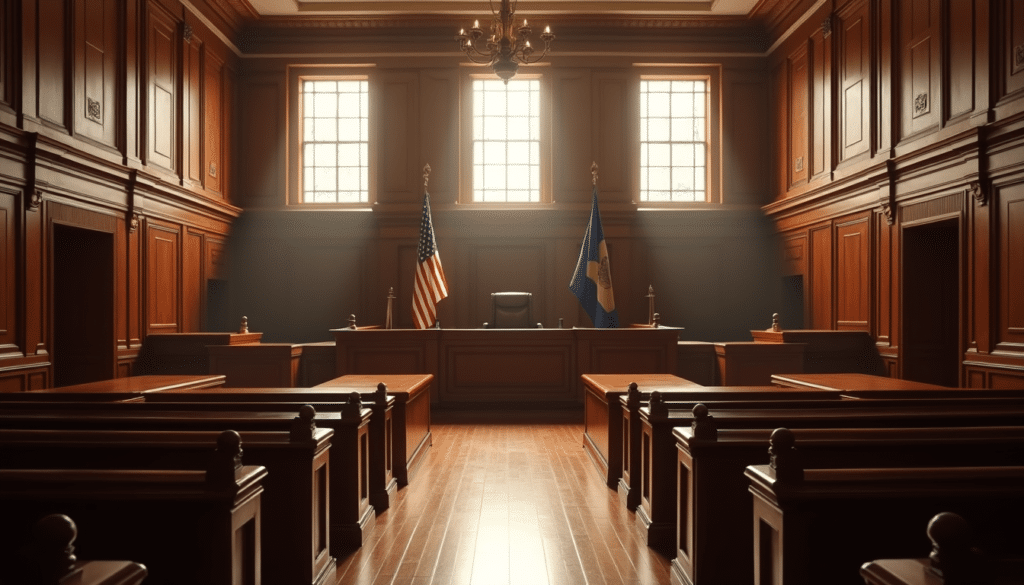
Criminal Case Procedure: Your Guide Through Wisconsin Courts
Being charged with a crime in Wisconsin demands patience and preparation. Most cases stretch beyond 12 months from arrest to resolution. The reality hits hard – each stage requires careful attention and strategic planning.
Your situation matters deeply to us, whether you face a minor citation or serious felony charges. The criminal justice process unfolds through multiple critical phases:
- Initial appearances
- Bail/Bond Hearings
- Preliminary hearings in felony cases
- Pretrial/ Status Conference hearings
- Motion Hearings
- Trial
- Sentencing
Our experienced criminal defense team recognizes the weight of uncertainty you carry. This guide strips away confusion and presents clear, direct information about each court appearance. We outline your rights, explain courtroom procedures, and prepare you for crucial decisions.
The criminal justice system should not overwhelm you. Our straightforward approach helps you understand what lies ahead. Your defense starts with knowledge – let us show you the way forward.
Your Constitutional Rights in Criminal Defense
The U.S. Constitution stands as your shield in criminal proceedings. Our criminal defense team ensures these fundamental protections remain intact throughout your case.
Miranda Rights – Your First Line of Defense Police must read your Miranda rights before any custodial questioning. These rights protect you from self-incrimination and guarantee your right to remain silent and request an attorney. Without proper Miranda warnings, your statements may be thrown out of court.
Legal Representation – Your Strongest Ally Every person deserves skilled legal counsel. The court must provide an attorney at no cost if you cannot afford one – this applies before any jail sentence can be imposed. Our experience shows this right extends to all felony cases and most misdemeanors, with rare exceptions for minor offenses.
Your Constitutional Shield Includes:
- A speedy, public trial before an unbiased jury
- Protection from unlawful searches under the Fourth Amendment
- The power to question witnesses who testify against you
- Freedom from repeated prosecution for the same crime
The Brady Rule – Truth in Prosecution Prosecutors must share evidence that helps your defense. This rule covers information that could reduce your sentence or challenge witness reliability.
Attorney-Client TrustYour private discussions with our attorneys stay confidential. This sacred privilege lets you speak freely about your case without fear of courtroom exposure. Our Madison criminal defense team protects these conversations with absolute dedication.
Inside the Criminal Courtroom: What to Expect
Our Madison criminal defense attorneys bring decades of courtroom experience to your case. The criminal trial process demands precise understanding of roles, procedures, and legal strategy.
The Criminal Court Players:
- The Judge – Controls proceedings, rules on legal matters, guides the jury
- The Prosecutor – Presents the state’s case against you
- Your Defense Attorney – Protects your rights, challenges evidence
- Court Reporter – Records every word spoken
- Courtroom Deputy – Handles exhibits, maintains order
Wisconsin prosecutors shoulder the burden of proof beyond reasonable doubt. They present evidence first, calling witnesses to build their case. Our defense team then cross-examines each witness, exposing weaknesses in testimony.
Legal objections shape trial testimony. Our attorneys challenge hearsay (second-hand statements) and irrelevant evidence. The judge’s ruling – “sustained” stops testimony, “overruled” allows it to continue.
Federal and Wisconsin cases demand jury unanimity for conviction. During deliberations, strict rules prevent juror contact with anyone involved in the trial unless both attorneys and the judge are present.
The trial concludes with both sides presenting closing arguments. The judge instructs jurors on applying the law. If convicted, a separate hearing determines your sentence.
Our criminal defense team stands ready to guide you through each phase of trial. Your freedom deserves nothing less than aggressive, experienced representation in Southern Wisconsin courts.
Critical Choices That Shape Your Criminal Defense
The reality of criminal defense demands careful consideration at every turn. DK Anderson’s criminal defense team handles hundreds of cases each year, with statistics showing 94% of state and 97% of federal cases ending in plea bargains rather than trials.
Our experience with plea negotiations reveals crucial patterns:
- Defendants accepting pleas consistently receive lighter sentences compared to trial verdicts
- Previous convictions and offense severity strongly influence plea decisions
The choice between bench and jury trials stands as another defining moment. Bench trials place verdict power solely with the judge, while jury trials let your peers determine the outcome. Though bench trials offer speed and cost savings, jury trials typically provide deeper evidence examination.
Strategic motions often turn cases in your favor. Our attorneys aggressively file suppression motions when police violate constitutional rights during evidence collection. These motions, if successful, results in excluding evidence from illegal searches or Miranda violations.
Your Path Forward in Criminal Defense
The criminal justice system demands experienced guidance. At DK Anderson, S.C., our track record proves the difference skilled representation makes. From Miranda rights through trial proceedings, your defense deserves unwavering dedication to protecting your freedom.
Statistics confirm plea bargains dominate criminal case resolutions. Yet each case stands unique, demanding careful evaluation of every option. The choice between plea agreements and trials shapes lives. Our aggressive defense approach ensures your interests stay protected, whether through negotiation or courtroom advocacy.
Your defense strategy builds on knowledge and experience. Our Madison criminal defense attorneys explain every aspect of your case – from courtroom procedures to constitutional protections. This partnership empowers you to make confident decisions about your future.
The path through criminal charges challenges even the strongest person. Trust in a defense team that stands beside you at every step. Our commitment shows in countless successful outcomes across Southern Wisconsin courts. Your freedom deserves nothing less than aggressive, competent representation from attorneys who exceed expectations.
For criminal defense that delivers results in Southern Wisconsin, contact DK Anderson, S.C. Let’s protect your rights and freedom today.
FAQs
Q1. What are Miranda rights and why are they important? Miranda rights are legal protections that must be read to you before any custodial police questioning. They include the right to remain silent and the right to an attorney. These rights are crucial because they protect you from self-incrimination and ensure that any statements made without proper Miranda warnings may be inadmissible in court.
Q2. How common are plea bargains in criminal cases? Plea bargains are extremely common in criminal cases. Over 94% of state criminal cases and 97% of federal cases end in plea bargains rather than going to trial. This high percentage underscores the importance of understanding plea bargain options and their potential impact on case outcomes.
Q3. What’s the difference between a bench trial and a jury trial? In a bench trial, the judge determines both questions of law and fact, while in a jury trial, a group of peers decides the verdict. Bench trials tend to be shorter and less expensive, but jury trials often provide more thorough consideration of evidence. The choice between the two can significantly impact the outcome of a case.
Q4. What is the “Brady rule” in criminal proceedings? The Brady rule requires prosecutors to disclose any evidence favorable to the defense. This includes information that could reduce the potential sentence or challenge witness credibility. This rule is crucial for ensuring a fair trial and protecting the rights of the accused.
Q5. How does attorney-client privilege work in criminal cases? Attorney-client privilege ensures that communications between a defendant and their lawyer remain confidential, as long as they occur in private and relate to legal advice. This protection allows defendants to speak openly with their attorneys without fear of their words being used against them later in court proceedings, which is essential for building an effective defense strategy.
